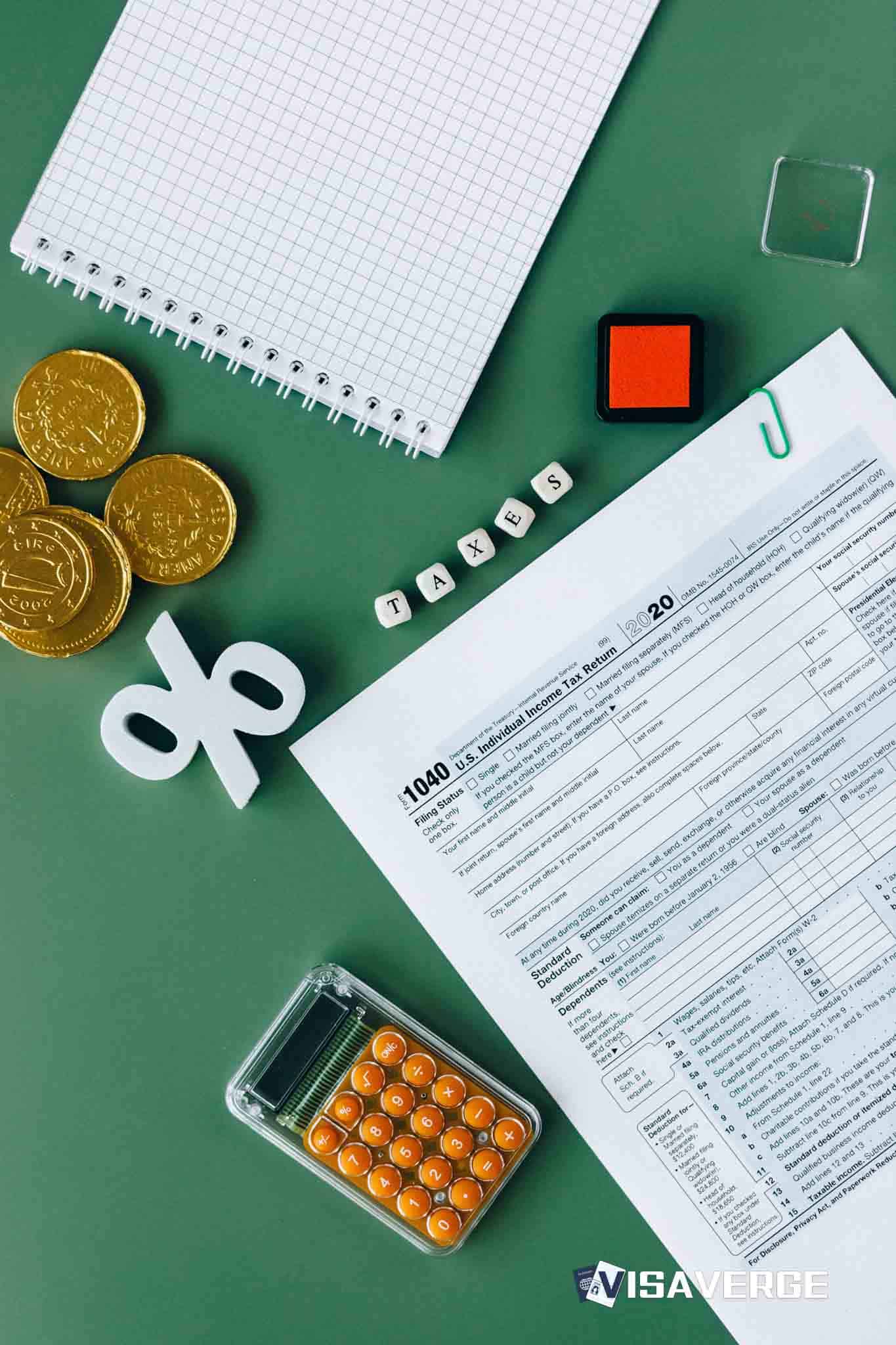Are you subject to the Generation-Skipping Transfer (GST) tax? Use this fast test. If any answer is “yes,” GST rules likely apply, and you may need to file:
- Are you giving property during your life (a gift) or at death to a grandchild, great-grandchild, or someone two or more generations below you?
- Are you transferring to someone not related to you who is at least 37.5 years younger than you?
- Are you making a transfer to a trust where all beneficiaries are “skip persons,” or the trust will later make distributions only to “skip persons”?
- Will a trust interest end (for example, when a child-beneficiary dies) and leave assets to grandchildren without estate tax at your child’s level?

If you answered “yes” to any of the above, you’re likely in GST territory. The GST tax sits on top of gift and estate tax and is charged at a flat rate of 40% after taking into account your lifetime GST exemption.
Core definitions you must know
- “Generation-Skipping Transfer”: A transfer that bypasses the next generation and goes straight to a skip person. It can be a lifetime gift, a transfer at death, or a trust distribution.
-
“Skip person”:
- A person two or more generations below you (such as a grandchild or great-grandchild), or
- An unrelated person who is at least 37.5 years younger than you.
- Three GST taxable events:
- Direct skip — a gift or bequest made straight to a skip person.
- Taxable distribution — a trust pays or distributes to a skip person.
- Taxable termination — a non-skip person’s interest ends and only skip persons remain.
Do you qualify for the GST exemption?
Each person has a lifetime GST exemption. For 2025, the exemption is approximately $13.99 million, indexed for inflation. You can allocate this amount to lifetime gifts or transfers at death that would otherwise trigger GST tax. When you allocate exemption to a trust, future growth on those assets is also protected.
Answer “yes” if the following are true, and you’ll likely qualify to shield your transfer from GST tax:
- You have unused lifetime GST exemption.
- You are making a transfer (during life or at death) that would otherwise be a GST taxable event.
- You properly allocate GST exemption to the transfer, either on a timely filed return or by automatic allocation rules that apply to certain trusts.
If you have already used your GST exemption in full, you do not qualify to shelter more transfers; GST tax may apply to the excess.
Filing and reporting basics
- Lifetime GST tied to gifts (direct skips or allocations to trusts) is reported on Form 709, United States Gift (and Generation-Skipping Transfer) Tax Return. File by April 15 of the year after the gift is made. Access the form here: IRS Form 709.
-
GST connected to an estate is handled on Form 706, United States Estate (and Generation-Skipping Transfer) Tax Return, due nine months after death. Access the form here: IRS Form 706.
-
Official IRS instructions explaining GST reporting and exemption allocation are here: Instructions for Form 709.
Missing these deadlines can lead to penalties and interest. Extensions are possible, but you must act before the due date.
When GST applies: yes/no examples
- Yes: You give $1 million cash during your life directly to your granddaughter. It’s a direct skip.
- If you have enough GST exemption and allocate it, no GST tax is due.
- If not, GST tax at 40% applies to the GST-taxable amount.
- Yes: Your trust pays $100,000 to your great-grandson. That payout is a taxable distribution; the recipient generally owes the GST tax, though mechanics depend on the trust’s inclusion ratio and allocated exemption.
-
Yes: Your child has a life interest in a trust, then dies, and all remaining assets pass to your grandchildren without being taxed in your child’s estate. That is a taxable termination; the trustee pays the GST tax unless exemption fully covers it.
-
No: You give $50,000 to your adult child. This is not a skip person transfer, so no GST (though gift tax rules still apply).
-
No: You pay a grandson’s tuition directly to a school. Direct payments to schools for tuition are not subject to gift tax and, as a result, are not GST taxable transfers.
Disqualifying factors that trigger GST tax
- You exhaust your lifetime GST exemption and continue making generation-skipping gifts or trust transfers to skip persons.
- You forget to allocate GST exemption to a trust that will later make distributions to skip persons, creating a non-zero inclusion ratio and future GST tax.
- You rely on automatic allocation, but your trust terms do not meet the conditions, or you elect out by mistake.
- You make a bequest at death to a skip person without enough remaining GST exemption.
Requirements to claim and protect the exemption
- Track your remaining GST exemption each year. The exemption is separate from the annual gift tax exclusion and is different from the basic exclusion used for estate and gift tax.
- Make a timely, clear allocation of GST exemption on your Form 709 for lifetime transfers, or on Form 706 at death.
- For trusts, confirm the trust is drafted to accept allocation, and keep records of the trust’s inclusion ratio after allocation. A ratio of zero means all trust assets and future growth are protected from GST tax.
Practical scenarios
-
Lifetime direct skip fully sheltered:
- You give $2 million to a granddaughter.
- You allocate $2 million of GST exemption on Form 709.
- GST tax is zero; your remaining lifetime GST exemption decreases by $2 million.
- Trust planning:
- You seed a trust with $3 million and allocate GST exemption to make the inclusion ratio zero.
- The trust grows to $6 million over time. All later distributions to grandchildren are protected from GST tax because the original allocation covers future growth.
- Partial shelter:
- You transfer $5 million but allocate only $2 million of exemption.
- Only part of the trust is protected; GST tax may apply proportionally to distributions or terminations.
Alternatives if you won’t qualify to shelter transfers
- Use the annual gift tax exclusion to reduce the taxable base. While this exclusion does not by itself eliminate GST exposure for direct skips, it lowers the amount counting against exemption.
- Pay tuition or medical bills directly to schools or medical providers — these payments are not subject to gift tax and therefore do not create GST tax.
- Give to your children first, allowing them to pass assets to their own children later. This keeps transfers within one generation at a time and may avoid GST at your level.
- Consider charitable gifts. Transfers to qualified charities are not subject to GST tax.
How to improve your chance of avoiding GST tax
- Plan early and file on time. A timely Form 709 lets you direct how much GST exemption to allocate and to which gifts or trusts.
- Use precise trust language. Draft trusts for grandchildren to qualify for allocation and to take advantage of automatic allocation rules when helpful.
- Keep records of prior allocations. Know your remaining exemption to avoid accidental taxable skips.
- Coordinate with spouses. Each spouse has a separate GST exemption. Spouses often split gifts and align allocations to fully protect transfers.
Common mistakes that cause avoidable tax
- Overlooking GST when naming grandchildren as contingent beneficiaries in a trust; a later taxable termination can surprise families with a large bill.
- Failing to link exemption allocation to the specific trust share. Vague or missing allocations can leave part of a trust exposed.
- Assuming gifts to much-younger friends are safe. If the recipient is 37.5 years younger and not related, that person is a skip person.
- Ignoring filing even when no tax seems due. If you use exemption, reporting is still required.
Who pays the GST tax?
- Direct skips during life: The donor files and pays, reported on Form 709.
- Taxable distributions: Generally paid by the recipient (the skip person), with calculation handled by the trustee.
- Taxable terminations: Generally paid by the trustee from trust assets.
- Transfers at death: Handled through Form 706 by the estate.
Deadlines, penalties, and where to find rules
- Form 709 due: April 15 of the year after the gift.
- Form 706 due: Nine months after death.
- Late filing or late payment can trigger penalties and interest. The IRS details filing rules and allocation methods in the official Instructions for Form 709.
Important takeaway: Families in the United States 🇺🇸 who pass wealth directly to grandchildren should review their GST exposure alongside gift and estate plans each year. The exemption amount adjusts annually for inflation, and planning choices today affect taxes on future trust growth. (Analysis by VisaVerge.com)
This Article in a Nutshell
The Generation-Skipping Transfer (GST) tax applies when assets bypass the next generation and benefit skip persons—typically grandchildren or unrelated recipients at least 37.5 years younger. GST taxable events include direct skips, taxable trust distributions, and taxable terminations. For 2025, the lifetime GST exemption is roughly $13.99 million, and the tax rate is a flat 40% on amounts exceeding the exemption. Lifetime transfers must be reported on Form 709 by April 15; estate-related GST is reported on Form 706 nine months after death. Effective planning requires timely exemption allocation, precise trust drafting to secure automatic allocation rules, tracking remaining exemption, and proper filing to avoid penalties and interest.













